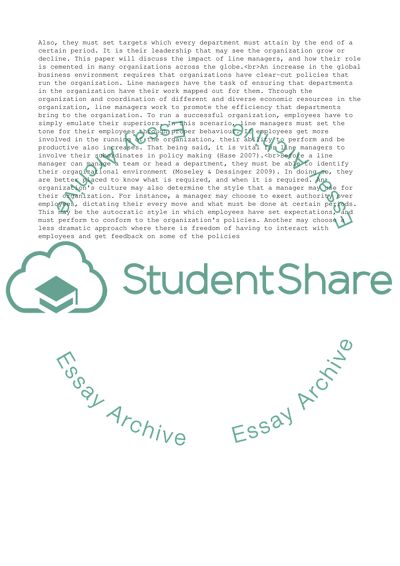Cite this document
(Impact of Line Managers on Organizations Essay Example | Topics and Well Written Essays - 2000 words - 1, n.d.)
Impact of Line Managers on Organizations Essay Example | Topics and Well Written Essays - 2000 words - 1. https://studentshare.org/management/1801881-evaluate-the-impact-line-managers-have-on-organisational-performance
Impact of Line Managers on Organizations Essay Example | Topics and Well Written Essays - 2000 words - 1. https://studentshare.org/management/1801881-evaluate-the-impact-line-managers-have-on-organisational-performance
(Impact of Line Managers on Organizations Essay Example | Topics and Well Written Essays - 2000 Words - 1)
Impact of Line Managers on Organizations Essay Example | Topics and Well Written Essays - 2000 Words - 1. https://studentshare.org/management/1801881-evaluate-the-impact-line-managers-have-on-organisational-performance.
Impact of Line Managers on Organizations Essay Example | Topics and Well Written Essays - 2000 Words - 1. https://studentshare.org/management/1801881-evaluate-the-impact-line-managers-have-on-organisational-performance.
“Impact of Line Managers on Organizations Essay Example | Topics and Well Written Essays - 2000 Words - 1”. https://studentshare.org/management/1801881-evaluate-the-impact-line-managers-have-on-organisational-performance.


